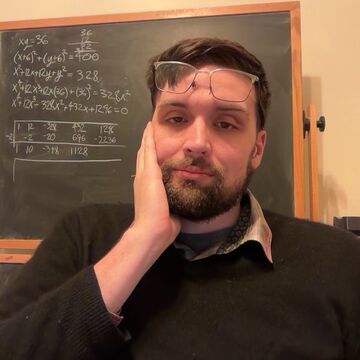

Samuel Dodds
Lecturer
Contact
Bio
Samuel Dodds (he/him) grew up in Salt Lake, Utah where he studied mathematics at the University of Utah. In 2016, Dodds moved to Chicago to get a Ph.D in math from UIC under the supervision of Dr. Alex Furman. Dodds' thesis, completed in 2023, was on the Furstenberg entropy of stationary boundaries of random walks on groups with hyperbolic properties. His mathematical research interests concerned the interplay of symmetry, geometry, and random motion. These days, Dodds is mostly occupied with teaching mathematics, as well as studying math, history, art, and philosophy on my own time.
For as long as he can recall he has preferred to walk wherever he's am going, but Dodds has learned the pleasures of biking and taking the train.